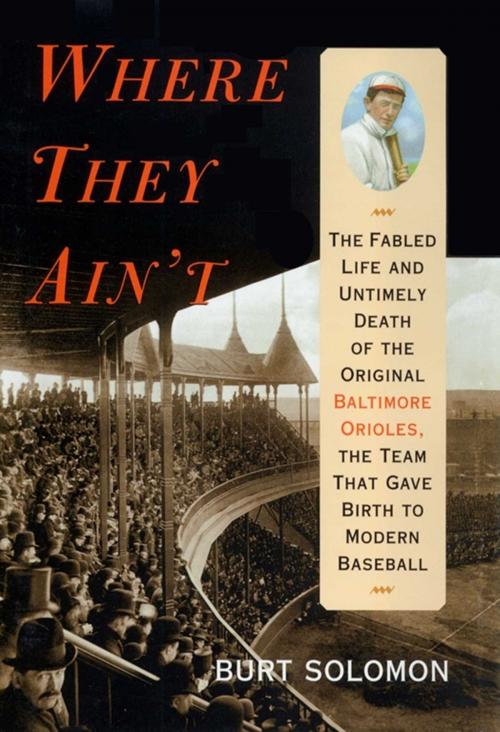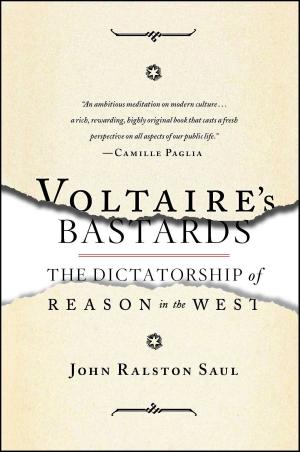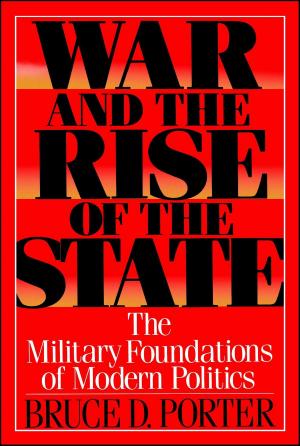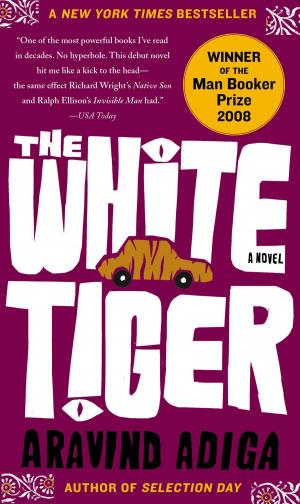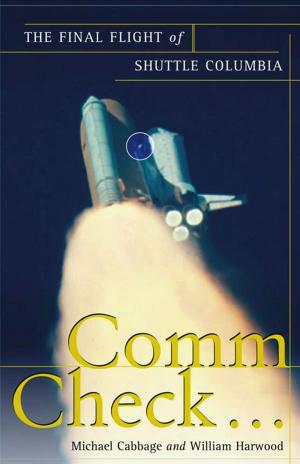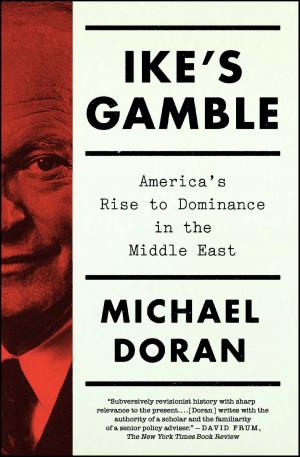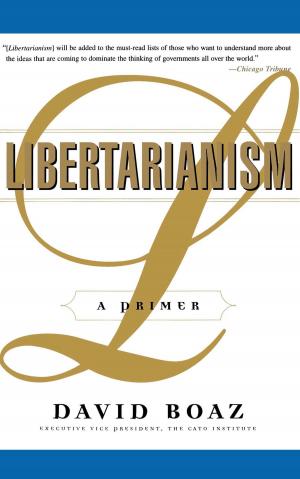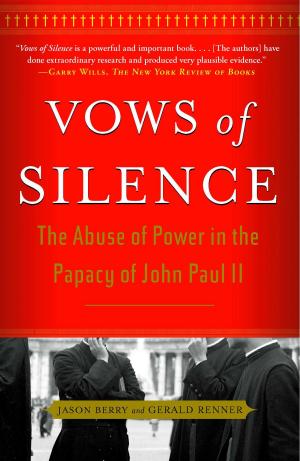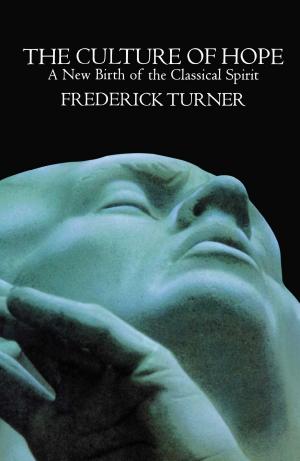Where They Ain't
The Fabled Life and Ultimely Death of the Original Baltimore Orioles, the Team that Gave Birth to Modern Baseball
Nonfiction, Sports, Baseball, History| Author: | Burt Solomon | ISBN: | 9780684859170 |
| Publisher: | Free Press | Publication: | August 4, 1999 |
| Imprint: | Free Press | Language: | English |
| Author: | Burt Solomon |
| ISBN: | 9780684859170 |
| Publisher: | Free Press |
| Publication: | August 4, 1999 |
| Imprint: | Free Press |
| Language: | English |
Greedy owners, spoiled players, disillusioned fans -- all hallmarks of baseball in the 'nineties. Only in this case, it's the 1890s. We may think that business interests dominate the sport today, but baseball's early years were an even harsher and less sentimental age, when teams were wrenched from their cities, owners colluded and the ballplayers held out, and the National League nearly turned itself into an out-and-out cartel. Where They Ain't tells the story of that tumultuous time, through the prism of the era's best team, the legendary Baltimore Orioles, and its best hitter, Wee Willie Keeler, whose motto "Keep your eye clear, and hit 'em where they ain't" was wise counsel for an underdog in a big man's world.
Under the tutelage of manager Ned Hanlon, the Orioles perfected a style of play known as "scientific baseball," featuring such innovations as the sacrifice bunt, the hit-and-run, the squeeze play, and the infamous Baltimore chop. The team won three straight pennants from 1894 to 1896 and played the game with snap and ginger. Burr Solomon introduces us to Keeler and his colorful teammates, the men who reinvented baseball -- the fierce third baseman John McGraw, the avuncular catcher Wilbert Robinson, the spunky shortstop Hughey Jennings, and the heartthrob outfielder Joe Kelley, who carried a comb and mirror in his hip pocket to groom himself between batters.
But championships and color were not enough for the barons of baseball, who began to consolidate team ownership for the sake of monopoly profits. In 1899, the Orioles' owners entered into a "syndicate" agreement with the ambitious men who ran the Brooklyn Trolley Dodgers -- with disastrous results. The Orioles were destroyed (and the franchise folded), the city of Baltimore was relegated to minor-league status just when the city's industries were being swallowed up by national monopolies, and even Willie Keeler, a joyful innocent who wanted only to play ball, ultimately sold out as well. In Solomon's hands, the story of the Orioles' demise is a page-turning tale of shifting alliances, broken promises, and backstage maneuvering by Tammany Hall and the Brooklyn and Baltimore political machines on a scale almost unimaginable today.
Out of this nefarious brew was born the American League, the World Series, and what we know as "modern baseball," but innocence was irretrievably lost. The fans of Baltimore, in fact, would have to wait more than half a century for the major leagues to return. Where They Ain't lays bare the all-too-human origins of our national game and offers a cautionary tale of the pastime at a century's end.
Greedy owners, spoiled players, disillusioned fans -- all hallmarks of baseball in the 'nineties. Only in this case, it's the 1890s. We may think that business interests dominate the sport today, but baseball's early years were an even harsher and less sentimental age, when teams were wrenched from their cities, owners colluded and the ballplayers held out, and the National League nearly turned itself into an out-and-out cartel. Where They Ain't tells the story of that tumultuous time, through the prism of the era's best team, the legendary Baltimore Orioles, and its best hitter, Wee Willie Keeler, whose motto "Keep your eye clear, and hit 'em where they ain't" was wise counsel for an underdog in a big man's world.
Under the tutelage of manager Ned Hanlon, the Orioles perfected a style of play known as "scientific baseball," featuring such innovations as the sacrifice bunt, the hit-and-run, the squeeze play, and the infamous Baltimore chop. The team won three straight pennants from 1894 to 1896 and played the game with snap and ginger. Burr Solomon introduces us to Keeler and his colorful teammates, the men who reinvented baseball -- the fierce third baseman John McGraw, the avuncular catcher Wilbert Robinson, the spunky shortstop Hughey Jennings, and the heartthrob outfielder Joe Kelley, who carried a comb and mirror in his hip pocket to groom himself between batters.
But championships and color were not enough for the barons of baseball, who began to consolidate team ownership for the sake of monopoly profits. In 1899, the Orioles' owners entered into a "syndicate" agreement with the ambitious men who ran the Brooklyn Trolley Dodgers -- with disastrous results. The Orioles were destroyed (and the franchise folded), the city of Baltimore was relegated to minor-league status just when the city's industries were being swallowed up by national monopolies, and even Willie Keeler, a joyful innocent who wanted only to play ball, ultimately sold out as well. In Solomon's hands, the story of the Orioles' demise is a page-turning tale of shifting alliances, broken promises, and backstage maneuvering by Tammany Hall and the Brooklyn and Baltimore political machines on a scale almost unimaginable today.
Out of this nefarious brew was born the American League, the World Series, and what we know as "modern baseball," but innocence was irretrievably lost. The fans of Baltimore, in fact, would have to wait more than half a century for the major leagues to return. Where They Ain't lays bare the all-too-human origins of our national game and offers a cautionary tale of the pastime at a century's end.
